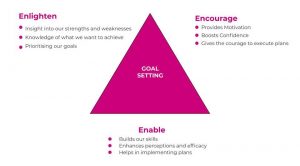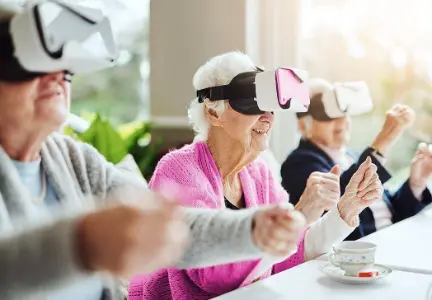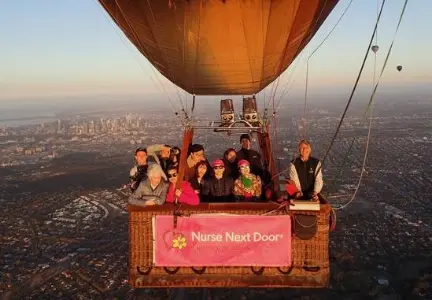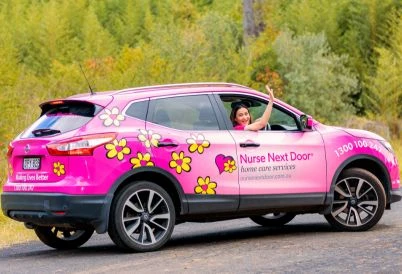Understanding the role accomplishment plays in achieving Happier Ageing
“Happiness is not something you postpone for the future; it is something you design for the present.” - Jim Rohn
When we talk with clients about happiness in home care - what we call Happier Ageing - we often talk about the idea of goal setting and its importance in achieving happiness as we age.
One of the most positive aspects of growing older is having the time to accomplish our dreams and passions, Yet the irony is, as we age, it’s not uncommon to lose our way and believe there's no point in setting goals. Whether due to our own physical or cognitive changes and the need for home care and assistance with daily living, or because we've been focused on the physical or cognitive decline of a partner or loved one, we often lose our sense of self as we age, focusing on what we can’t do instead of what we can. We start using sentences that begin with “I’m too old”!
The 5 pillars of happiness
Through evolution, our brain was built with a tendency to pay attention to the negative - survival over happiness. While this may have served our ancestors well, today we are not helped by finding every fault and threat in our daily environment. We need to arm ourselves with the tools to set and achieve goals and take small positive actions every day that will lead to large changes over time.
Following the lead of positive psychologist Dr Martin Seligman and his studies in happiness, we believe there are 5 pillars upon which Happier Ageing stands:Choice - the opportunity to choose freely and determine where and how we spend our energyBelonging - the need for regular, meaningful social interactionsRespect - a healthy respect for ourselves and othersAutonomy - the ability to make decisions without influence or interferencePurpose - our reason for beingFrom a very young age we are encouraged to think about what we want to do and be when we “grow up”. We set various goals - personal goals, educational goals, career goals, and in one way or another we pursue them. In the process, we gather moments and memories that define us: the marks on the walls reminding us of how the family we raised; the vegetable garden we planted that provided food for much loved family meals, the degree on the wall in our home office, the suit hanging in the cupboard, the photos of a family trip... A lifetime of moments and memories, friends and family, woven into the fabric of who we are.
These 5 pillars underpin our ability to set goals. Powerful principles that empower us to experience happiness and a sense of fulfilment.

Accomplishment = Happiness
So think about it. Why, simply because you're "older", do you stop making memories? Your lifetime is not over until you draw your last breath.
Research has shown how incredibly beneficial the confidence boost is to our sense of wellbeing by completing an everyday task such as making our bed in the morning. In fact, few things in life are as satisfying as a job well done. In other words, accomplishments are a key part of our happiness. That’s why our caregiving starts with the question: “what did you used to love doing that you no longer do?” The aim is to encourage all of us to keep setting goals and designing our own path to happiness. From tabletop gardening to hot air ballooning we encourage clients to rediscover an old hobby, or uncover a new one - to remember what it is they love to do and then find ways to do it more.
Pushing ourselves to attain something we thought impossible is a wonderful feeling at any age and nOptimism often drives the ability to set goals and goal setting drives optimism. So which comes first? The more goals we achieve, the better sense of self we have, giving us a greater chance of achieving happiness, thinking optimistically, and setting more goals for the future.
eeding a little extra care is no reason to stop setting goals. If anything, it's the perfect opportunity to start looking for new challenges. We have found time after time that a home care plan creates the ideal platform for greater accomplishments and continued happiness.
Getting Started
At Nurse Next Door we see so many clients achieve happiness by setting and achieving goals. The most important thing is getting started.
Much work has been done to understand the theory of goal setting. Perhaps most widely know is George T. Doran’s acronym ‘SMART’ goals - pecific, easurable, ttainable, ealistic, ime bound - an acronym he coined in 1981 which researchers have more recently extended to SMART goals, adding thical and ewarding to the list.
SMARTERER
More recently the American Psychological Association (APA) published an article by Kenneth Nowack discussing E-E-E goal setting as serving three purposes: enlightening, encouraging and enabling us. When we set out to achieve goals we learn more about ourselves, we gain courage and confidence through achievement and build our skills and abilities in the process.

To set a goal, we encourage our clients to break it down as follows:Happier Ageing is about focusing on what you CAN DO, not what you can’t. It requires a willingness to accept your new reality and move forward. It’s about pursuing the best life you can have, right now. As you age, we encourage you to be bold and brave and remember, as Atul Gawande says in his book : “Our ultimate goal is a good life all the way to the very end.”
- Write down what it is you want to achieve. Think about what skills, knowledge, materials and support you have to achieve the goal, and what’s missing.
- Think about who you can talk to and where you can go to get the skills, knowledge, materials and support that you don’t have.
- Tell your caregiver your plans, they’ll be your biggest cheerleader, providing support and encouragement and helping you navigate the path to achievement.
- Seek feedback and, if it’s a big goal, give yourself rewards along the way. This will help your motivation and allow you to see your progress.




















